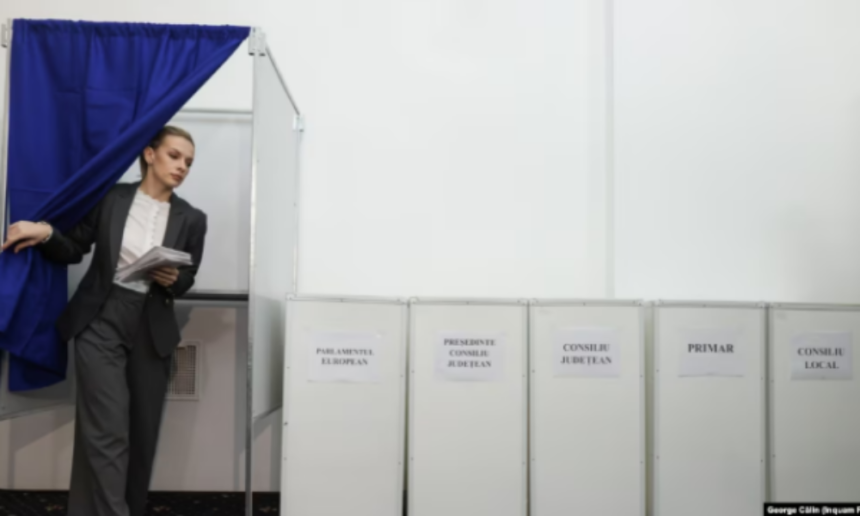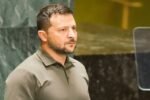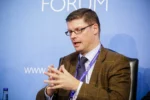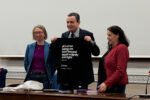Romanians are casting their votes on Sunday in the first round of presidential elections, which could see a right-wing nationalist contender face off against the current left-wing prime minister in the second round. Thirteen candidates are vying for the presidency of this EU and NATO member state.
Election Timeline and Key Dates
The presidential election marks a significant political event for Romania, with President Klaus Iohannis, a right-wing figure, concluding his second term after a decade in power. The first round of voting takes place on November 24, and if no candidate secures over 50% of the vote, the top two candidates will compete in a runoff on December 8. Meanwhile, parliamentary elections are scheduled for December 1, Romania’s National Day.
Priorities for Romania’s Future
Oana Popescu-Zamfir, director of the Center for Global Focus in Bucharest, highlights two critical issues for Romania in the coming year: first, the growing threat of instability in the region and globally, especially with the potential return of former U.S. President Donald Trump to the White House; second, the risk of deepening economic and financial crises, exacerbated by Romania’s high budget deficit and inflation.
Voter Concerns: Economy and Corruption
Romanian voters are deeply concerned with economic stability and corruption, which have plagued the country for years. Popescu-Zamfir points out that issues such as living conditions, inflation reduction, and the budget deficit are at the forefront of voters’ minds. Romania has seen high inflation rates, with 2022 marking 13.8%, dropping to 10.4% in 2023, and expected to stay above 5% in 2024, the highest in the EU.
Corruption remains a significant issue, especially in the healthcare sector, where bribery for medical services is still a common concern despite efforts to curb it.
Foreign Policy in Focus: Ukraine and NATO
In addition to domestic issues, foreign policy plays a crucial role in this election, particularly in relation to the ongoing war in Ukraine and Romania’s stance toward Russia. Romania, a key ally of Ukraine, has provided military aid and logistical support during the Russian invasion. Romania’s role within NATO, especially as a strategic partner on the Eastern flank, also shapes the presidential race, with candidates’ positions on national security and foreign policy closely scrutinized.
Popescu-Zamfir notes that voters are particularly focused on how presidential candidates will handle Romania’s security concerns, especially if tensions with Russia escalate. The president has significant influence over national security and foreign policy, even though Romania’s prime minister holds executive power.
Who’s Leading the Race?
Current opinion polls suggest that Marcel Ciolacu, Romania’s prime minister and leader of the Social Democratic Party, is leading the pack of 13 presidential candidates. However, his campaign has been overshadowed by accusations regarding his alleged links to a real estate company, leading to calls for his resignation. Should Ciolacu advance to the second round, he may face off against George Simion, a right-wing nationalist who has gained traction in recent months.
Simion’s rise has sparked concern among some voters, who fear that his potential victory could lead Romania down an autocratic, pro-Russian path, similar to Hungary’s Viktor Orbán. According to Popescu-Zamfir, many Romanians believe a win for Simion would signal a shift away from Western alignment and could restrict civil liberties and democratic freedoms.
Outlook for Romania’s Political Future
Looking ahead, Romania faces significant economic challenges, particularly related to inflation and budget deficits. Regardless of who wins the presidency, the country will need to implement stricter economic and fiscal policies to stabilize the economy. Popescu-Zamfir urges Romania to prioritize cooperation with the U.S. administration, particularly under Trump, to continue supporting Ukraine and navigating global instability.
With the December 1 parliamentary elections and the ongoing presidential race, Romania’s political landscape is in flux, but the country must remain focused on its economic recovery and national security, ensuring its role as a stable member of the EU and NATO.







